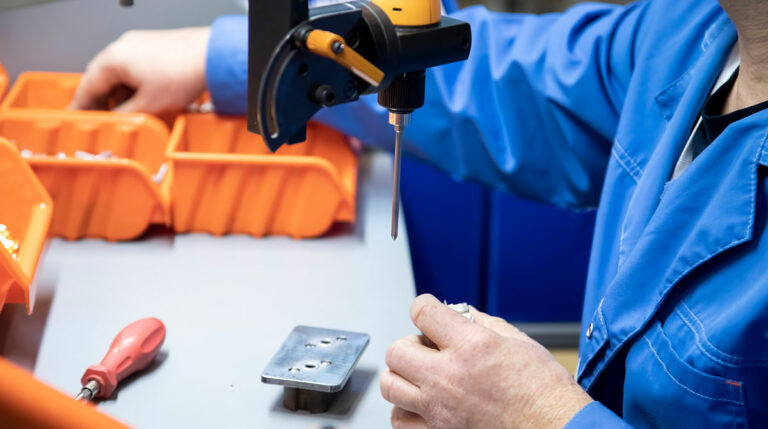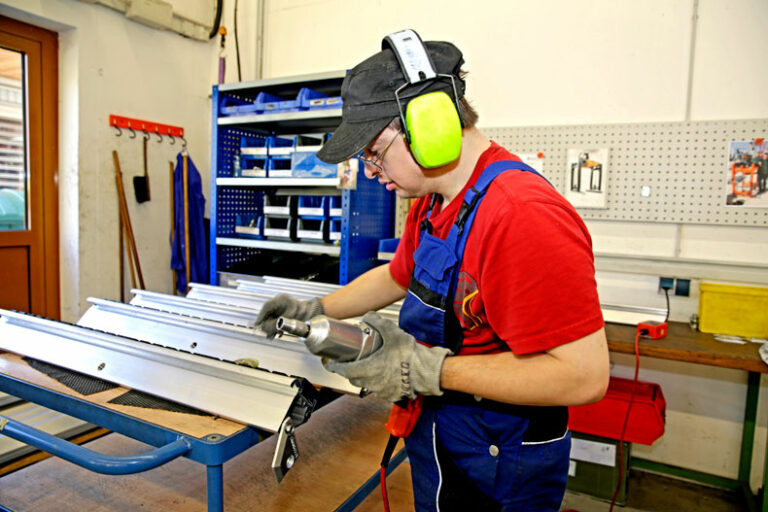
Startseite > Labor, economy and innovation
Labor, economy and innovation
In the department “Work, Economy, Innovation” infas addresses diversity and innovation in the economic and working world. Important focal points here are quality of work and employee health, company and establishment surveys, and labor market policy.
More than ever, work and the economy in the 21st century are subject to permanent and accelerated change. Megatrends such as demographic change, digitization, the globalization of finance, goods and services, the development of new key technologies, but also increasing migration movements worldwide, climate change as well as geopolitical developments entail far-reaching economic and social consequences. Unsere Gesellschaft wird daher stark von vielerlei Unsicherheit und Krisen geprägt, zeigt sich zugleich resilient, offen für soziale und technische Innovationen sowie stabil in vielen Fundamenten gesellschaftlicher Institutionen.
This applies not least to the world of business and work, which infas has accompanied and studied for many years in a wide variety of projects. Innovation is a cross-cutting issue that permeates business and labor topics in equal measure, whether this concerns new working time models for employees, operational innovations in the core business, in the management of the company’s own data, resources and infrastructure, or even in-company training and continuing education. All these aspects are reflected in infas projects and studies.
News about labor, economy and innovations
Quality of work and employee health
This subfield includes studies on the economic situation of employees, working conditions and quality of work, job security and mobility, as well as manifestations and effects of digitalization. Quality of work and job satisfaction are not only in the self-interest of employees, but are also an important productivity factor for companies. “Good” and “healthy” work ensures the motivation and operational capability of employees and contributes to the economic strength of the domestic economy. The topics currently in focus include, for example, the effects of (digitization-related) changes in working conditions on the mental health of employees, but also the reorganization of work forms between company presence, mobile work and home office.
The main focus of infas’ work is on
- cross-sectional and longitudinal surveys of dependent employees,
- repeat measures of job quality and job satisfaction,
- studies on the relationship between working conditions, workloads and health limitations.
Projects on the topic of quality of work and employee health
Company and business surveys
The dynamics and innovation developments (especially) in the German economy are illuminated by infas within the framework of various company and business surveys. The focus here is on questions relating to innovation behavior, technical change, the use of information technologies and the deployment of personnel in certain sectors, as well as vocational training policy issues such as the need for in-company training. Ein besonders wichtiger Aspekt in vielen Projekten ist die Berücksichtigung der Perspektiven, Ressourcen und Aktivitäten von kleinen und mittleren Unternehmen (KMU). Start-up activity and aspects of self-employment are also the subject of various studies.
The spectrum of infas’ company or business surveys includes:
- Studies on the innovation behavior of the German economy,
- Surveys on the use of information and telecommunications technologies,
- Surveys on (industry-specific) personnel deployment,
- Cost and benefit analyses of on-the-job training and continuing education,
- Analyses of occupational skill requirements,
- Studies on the shortage of skilled workers.
- Studies on the minimum wage in selected industries.
Public transport plays a significant role in achieving climate targets or ensuring future mobility in metropolitan areas and rural areas alike. At the same time, public transport is in strong competition with private transport and new mobility services.
Public transport plays a significant role in achieving climate targets or ensuring future mobility in metropolitan areas and rural areas alike. At the same time, public transport is in strong competition with private transport and new mobility services.
Labor market policy
infas also has many years of experience with research and consulting in the context of labor market policy. Work in this thematic field concerns (evaluation) studies on labor market instruments, and on legal regulations of forms of employment, such as contracts for work and services, temporary employment, or the (planned) reform of the remuneration system in workshops for the disabled (WfbM). Another facet is accompanying research projects for model projects or reorganization measures of the Federal Employment Agency. Methodologically, these studies often combine quantitative and qualitative survey methods.
The diverse spectrum of infas projects on labor market research includes
- Studies on the promotion of continuing vocational training and transfer services,
- Labor Demand and Labor Market Flexibility Surveys,
- Integration of different population groups into the labor market,
- Research and analysis on labor market policy instruments and placement strategies,
- Evaluation of government support and inclusion services for the unemployed, youth entering the workforce, rehabilitants, and migrants,
- Studies on business start-ups and their promotion,
- Studies on the practice, performance and model projects of the Federal Employment Agency, employment agencies and job centers
- Studies on the situation and reintegration of (long-term) unemployed and jobseekers.











